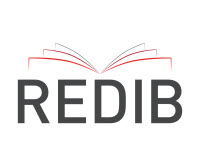Pseudangelia - Pseudangelos: sobre mensajes falsos y mensajeros en la antigua Grecia
Resumen
El objetivo de este artículo es analizar los conceptos de mensaje falso (pseudangelia) y mensajero (pseudangelos) en la antigua Grecia basados principalmente en la investigación de Sian Lewis en News and Society en la Polis griega y la estratagema de Everett L. Wheeler y el vocabulario de Truco militar. El artículo trata también del concepto mítico del engaño (metis) en el contexto de la ética aristotélica. Después de un breve recorrido por mensajes falsos y mensajeros al comienzo de la Segunda Guerra Mundial, Thomas Froehlich aborda brevemente la investigación reciente sobre la sociedad de la desinformación en la conclusión.Descargas
Citas
Aristotle (1957): Politics. Oxford: Clarendon Press. Recuperado de: http://www.perseus.tufts.edu/hopper/text?doc=Perseus%3Atext%3A1999.01.0057%3Abook%3D5%3Asection%3D1313b
Aristotle (1966): Poetics. Oxford: Clarendon Press. Recuperado de: http://www.perseus.tufts.edu/hopper/text?doc=Perseus%3Atext%3A1999.01.0055%3Asection%3D1455a
Aristotle (1894): Nicomachean Ethics. Oxford: Clarendon Press. Recuperado de: http://www.perseus.tufts.edu/hopper/text?doc=Perseus%3atext%3a1999.01.0053.
Buchmann, J. (Hg.) (2012): Internet Privacy – Eine multidisziplinäre Bestandsaufnahme. acatech Studie. Recuperado de: https://www.acatech.de/publikation/internet-privacy-eine-multidisziplinaere-bestandsaufnahme/
Capurro, R. (1978): Information. Ein Beitrag zur etymologischen und ideengeschichtlichen Begründung des Informationsbegriffs. München: Saur. Recuperado de: http://www.capurro.de/info.html
Capurro, R. (2003): Medien (R-)Evolutionen. Platon, Kant und der Cyberspace. In: R. Capurro: Ethik im Netz. Stuttgart: Steiner, 182-197. Recuperado de: http://www.capurro.de/leipzig.htm
Capurro, R. (2020): Angeletics. Work in progress. Recuperado de: http://www.capurro.de/angeletics_notes.html
Capurro, R./Holgate, J. (Ed.) (2011): Messages and Messengers. Angeletics as an Approach to the Phenomenology of Communication. Munich: Fink.
Clausewitz, C. v. (2020): On War. Project Gutenberg. (German: Vom Kriege. Augsburg 1990). Recuperado de: https://www.gutenberg.org/files/1946/1946-h/1946-h.htm#chap06
Detienne, M./Vernant, J.P. (1974): Les ruses de l'intelligence. La mètis des Grecs. Paris: Flammarion. (Engl. transl. Cunning Intelligence in Greek Culture and Society. The University of Chicago Press 1991. Recuperado de: http://xenopraxis.net/readings/detienne_cunning.pdf
Demosthenes (1903): Philippic. Oxford: Clarendon Press. Recuperado de: http://www.perseus.tufts.edu/hopper/text?doc=Perseus%3atext%3a1999.01.0069%3aspeech%3d4
Department of the Navy - Naval Historical Center, Washington DC (2006): Battle of the River Plate, December 1939. Recuperado de: http://web.archive.org/web/20140302023815/http:/www.history.navy.mil/photos/events/wwii-atl/batlt-41/r-plate.htm
Froehlich, Th. J. (2019): The role of pseudo-cognitive authorities and self-deception in the dissemination of fake news. In: Open Information Science 3, 115–136. Recuperado de: https://doi.org/10.1515/opis-2019-0009
Froehlich, Th. J. (2020): Ten Lessons for the Age of Disinformation. Submitted book chapter for Navigating Fake News, Alternative Facts and Misinformation in a Post-Truth World, edited by Professor Kamiz Dalkir, University of Montreal, to be published in Spring, 2020. Recuperado de: http://personal.kent.edu/~tfroehli/froehlich.final.book.chapter.draft.rev3.pdf
Habermas, J. (1962): Strukturwandel der Öffentlichkeit. Frankfurt am Main: Suhrkamp.
Herodotus (1920): The Histories. Cambridge: Harvard University Press. Recuperado de: http://www.perseus.tufts.edu/hopper/text?doc=Perseus%3Atext%3A1999.01.0125%3Abook%3D8%3Achapter%3D98%3Asection%3D1
Hesiod (1914): Theogony. London: Heinemann. Recuperado de: http://www.perseus.tufts.edu/hopper/text?doc=Perseus%3atext%3a1999.01.0129
Homer (1920): Iliad. Oxford: Oxford University Press. Recuperado de: http://www.perseus.tufts.edu/hopper/text?doc=Perseus%3Atext%3A1999.01.0133%3Abook%3D15%3Acard%3D149
Homer (1919): Odyssey. London: Heinemann. Recuperado de: http://www.perseus.tufts.edu/hopper/text?doc=Perseus%3atext%3a1999.01.0135
Karamanou, I (2019): Refiguring Tragedy. Studies in Plays Preserved in Fragments and Their Reception. Berlin: de Gruyter.
Knobloch, C. (2014): Was man Sprach- und Kommunikationswissenschaftler über die "Lüge" fragen darf – und was nicht. In: Cahiers d'études germaniques, 67, 27-44. Recuperado de: https://journals.openedition.org/ceg/1642
Lewis, S. (1996): News and Society in the Greek Polis. London: Duckworth.
Liddell, H. G./Scott, R. (1940): A Greek-English Lexicon. Oxford: Clarendon Press.
Ovidius (1892): Metamorphoses. Gotha: Perthes. (Metamorphosen, München: Artemis 1983). Recuperado de: http://www.perseus.tufts.edu/hopper/text?doc=Perseus%3Atext%3A1999.02.0029%3Abook%3D12%3Acard%3D1
Platon (1903): Charmides. Oxford: Clarendon Press. Recuperado de: http://www.perseus.tufts.edu/hopper/text?doc=Perseus%3Atext%3A1999.01.0175%3Atext%3DCharm.%3Asection%3D160b
Schottlaender, R. (1927): Die Lüge in der Ethik der griechisch-römischen Philosophie. In: Otto Lipmann, Paul Plaut, Hg.: Die Lüge in psychologischer, philosophischer, juristischer, pädagogischer, historischer, soziologischer, sprach- und literaturwissenschaftlicher und entwicklungsgeschichtlicher Betrachtung. Leipzig: Ambrosius Barth.
Wheeler, E. L. (1988): Stratagem and the Vocabulary of Military Trickery. Leiden: Brill. Recuperado de: https://books.google.de/books?id=WsF8FF40qKUC&pg=PA40&lpg=PA40&dq=pseudangelia&source=bl&ots=iQ0lxcemr1&sig=b1ybHaucPHXaM2jq6C6DOfTZCx8&hl=de&sa=X&ved=0ahUKEwiy-qG524LZAhUHJuwKHTKcCXcQ6AEIJzAA#v=onepage&q=pseudangelia&f=false)
Wikipedia: Metis. https://en.wikipedia.org/wiki/Metis_(mythology)
Xenophon (1968): Hellenica. Oxford: Clarendon Press. Recuperado de: http://www.perseus.tufts.edu/hopper/text?doc=Perseus%3Atext%3A1999.01.0205%3Abook%3D3%3Achapter%3D4%3Asection%3D1
Xenophon (1969): Hipparchikos. On the Cavalry Commander. Oxford: Clarendon Press. Recuperado de: http://www.perseus.tufts.edu/hopper/text?doc=Perseus%3Atext%3A1999.01.0209%3Atext%3DCav.%3Achapter%3D5%3Asection%3D8
Derechos de autor 2020 Rafael Capurro

Esta obra está bajo licencia internacional Creative Commons Reconocimiento 4.0.







.jpg)




















